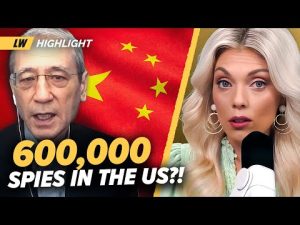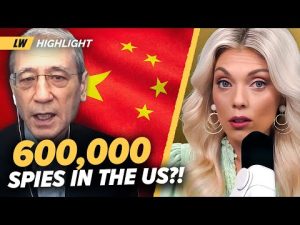In what seems like a plot twist straight out of a political drama, Attorney General Pam Bondi has introduced a new chapter into the infamous saga commonly dubbed as the “Russiagate Hoax.” The Justice Department is stepping up its game, directing an unnamed federal prosecutor to present evidence to a grand jury. This move fuels the already simmering allegations of a conspiracy back during the 2016 presidential election to undermine Donald Trump’s campaign and eventually his presidency. Fox News, with its finger firmly on the pulse, revealed that Bondi took radical steps after receiving a criminal referral from none other than the Director of National Intelligence, Tulsi Gabbard.
Now, let’s take a moment to marvel at the dogged determination of both Bondi and Gabbard. It seems they are on a crusade to untangle the web of deception that allegedly sought to tether Trump to Russia. The grand jury process remains at the tip of the iceberg, with no charges filed yet. But in D.C. politics, where cloak-and-dagger maneuvers are the norm, this news represents a seismic shakeup. While the Justice Department remains tight-lipped, its actions suggest a belief that previous misconduct could be real, or at least plausible enough to warrant this high-stakes gamble in front of a grand jury.
As can be expected, the rumor mills are churning. The names John Brennan and James Clapper have come up, suggesting the possibility that those entrenched within the intelligence community could be scrutinized. And while Hillary Clinton’s name echoes like a haunting refrain, there’s still no word if she might face an unexpected encore performance in court. Conspicuously safe from this drama, thanks to legal precedents following him like a protective cloak, is former President Barack Obama. Thus, the stage remains focused on others who don’t possess such judicial armor.
In the shadows of this developing saga, speculation abounds about what potential charges—if any—could arise. Felony charges like lying to federal officials could make their expected appearance, echoing previous investigations led by former special counsel John Durham. His attempts, though often thwarted by courtroom battles, included securing a plea deal, hinting at the serious yet complex nature of federal prosecutions. With the Justice Department acting like a legal ninja in its strategic secrecy, specifics on charges remain under wraps, keeping observers on tenterhooks.
What shapes up here is not just a legal battle. It’s a spectacle laden with political intrigue. The implications stretch across jurisdictions, meaning that the courtroom circus could pop up just about anywhere from sea to shining sea. The timeline fun is also unpredictable—neither the attorneys nor the media pundits can predict exactly when the grand jury will let its gavel fall with any finality. But one thing is certain: this unfolding drama ensures that a keen eye is kept on what’s happening backstage in our justice system, awaiting whether indictments—or just more drama—will roll out from this latest act in the eternal play of Washington’s political theatre.







